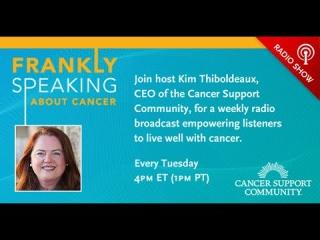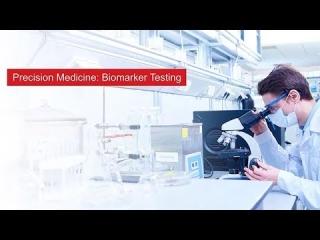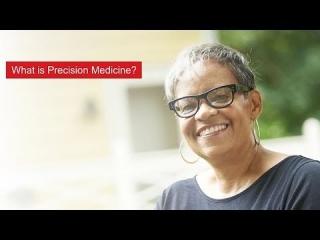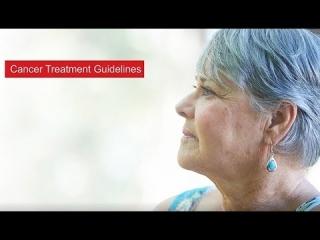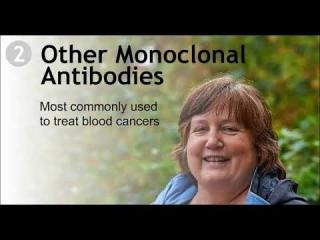Spotlight on Coronavirus: Coping with the Emotions
In this installment of our special series Spotlight on Coronavirus, we focus on the emotions and feelings that cancer patients and caregivers might experience as they cope with the impact of the spread of coronavirus. Many cancer patients and caregivers are reporting feeling alone, anxious, and fearful of the future. Our guests help put context to our feelings and share strategies to help us cope.
What Do I Tell the Kids?
Cancer affects a family in many ways. Many parents try to protect their children by not sharing information about the situation. However, children of all ages can feel the impact of an illness on a family. This quick guide will give you information about a child’s general understanding of cancer, ways to talk to them about cancer, some common behaviors you may see in children, and ways to support your family through this experience. Watch this 6-minute guide to learn more about how to talk with your children about a cancer diagnosis and treatment.
Targeted Therapies
Targeted therapy is a type of cancer treatment that targets a specific change in some cancers that helps them grow, divide, and spread. Targeted drugs are designed to block cancer growth ‘driven’ by these changes to the tumor’s gene. Doctors decide to us a targeted therapy based on the findings of biomarker tests, including mutation testing of your tumor. Take this 6 minute guide to learn more about targeted therapies and how they are being used to treat cancer patients.
Biomarker Testing
A biomarker is a sign of disease or abnormal function that can be measured in your blood, tissue, or bodily fluid. In cancer, biomarkers are often used to help choose the best treatment for you. These biomarkers can be proteins, genes, or gene mutations.
Precision Medicine: Cancers You Can Inherit
Genes – which make up your DNA – are molecules inside your cells that you inherited from your birth parents. Sometimes genes are inherited with changes in the DNA, called mutations. Very small changes in the DNA can sometimes cause large issues like cancer. Some inherited mutations can raise a person’s cancer risk later in life. Watch this 6-minute guide to learn more about inherited genetic mutations and how testing for these mutations can help to prevent and diagnosis cancer. This is the second guide in the Precision Medicine eLearning series.
Precision Medicine Overview
Precision medicine takes into account how different each person’s environment, lifestyle, and genes are from one another. The goal of precision medicine is to create a treatment plan according to the “precise” molecular aspects of each patient’s cancer. Treatments can be developed for groups of patients whose cancers all share a specific type of gene or protein. Watch this 8-minute guide to learn more about precision medicine and how it is being used to treat cancer patients. This is the first guide in the Precision Medicine eLearning series.
Cancer Treatment Guidelines
Guidelines are recommendations for “best practices” in cancer care. Your doctor may be using a Cancer Treatment Guideline to decide what your treatment options should be. Learn more about Treatment Guidelines, how they are developed, and how they influence your care by watching this 12-minute quick guide.
Immunotherapy Side Effects
If you or your loved one is interested in immunotherapy, it is important to know about the possible side effects of immunotherapy treatments. Immunotherapy side effects are generally different from the side effects of other cancer treatments, like chemotherapy or radiation therapy. Some immunotherapy side effects may occur right away. Others may not occur for days, weeks, or months after treatment. Every cancer patient receiving immunotherapy should talk to their doctor about possible side effects. Watch this 10-minute guide to learn more.
Immunotherapy Overview
Cancer patients and their loved ones may start hearing more about immunotherapy treatments. These treatments use the body’s natural defense system (called the immune system) to help fight cancer. Immunotherapy treatments can use lots of different ways to attack cancer cells. This eLearning guide will explain what immunotherapy is and how it works. The guide covers 8 common types of immunotherapy treatments and explains how each treatment works in different ways with your immune system to fight cancer.
